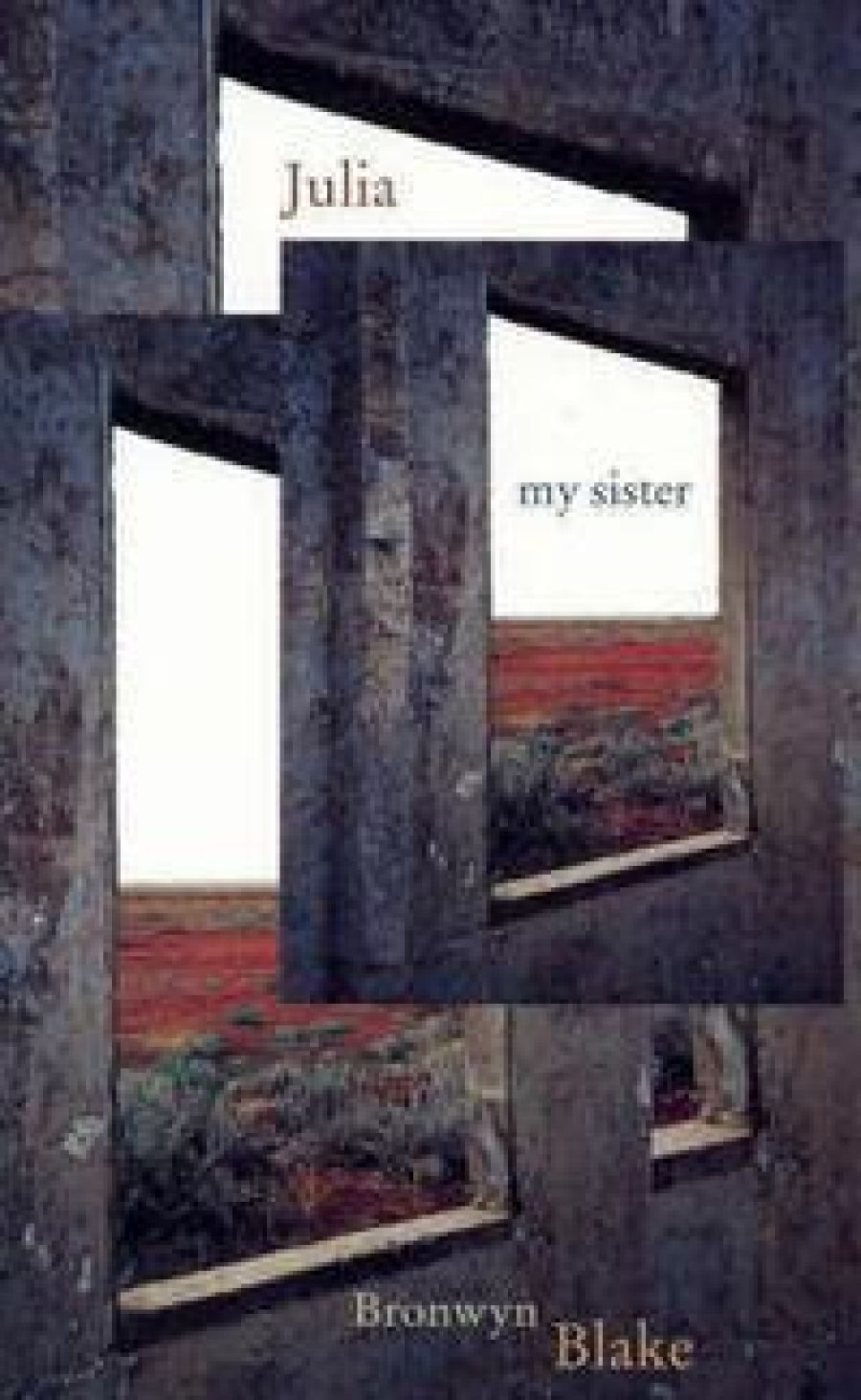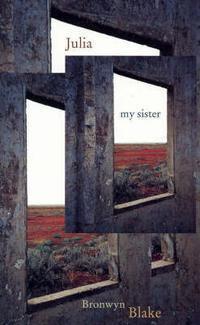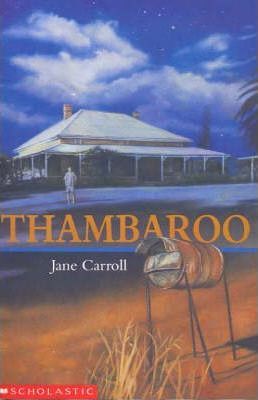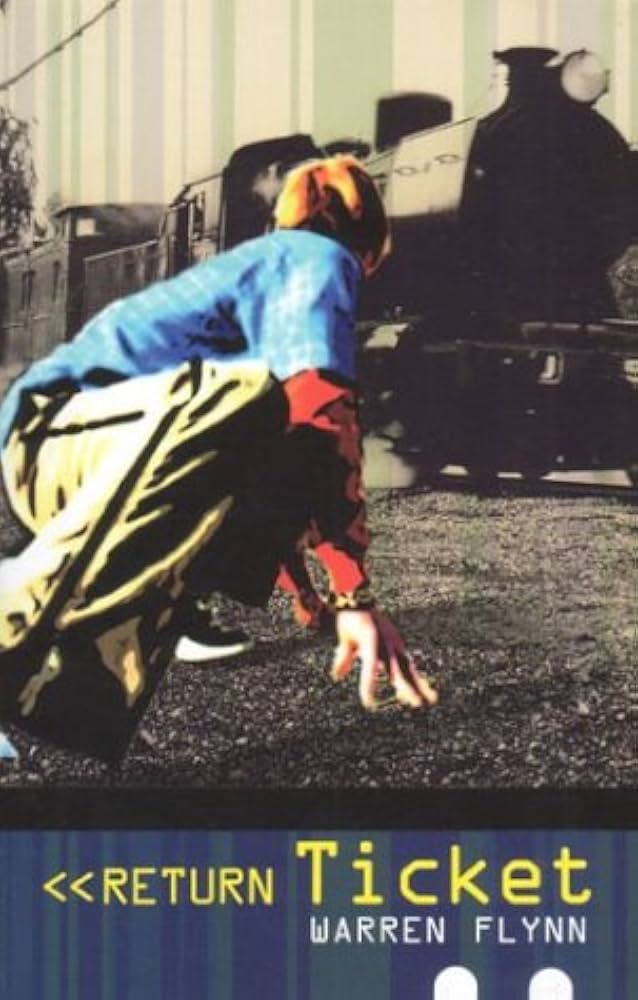
- Free Article: No
- Contents Category: Children's and Young Adult Fiction
- Custom Article Title: Robyn Sheahan-Bright reviews Eight Young Adult Novels
- Review Article: Yes
- Article Title: Not Quite Normal
- Online Only: No
- Custom Highlight Text:
Much young adult fiction is about not fitting in. How that topic is covered distinguishes the hack from the frustrated pedant and the gifted writer. This review covers eight YA novels by skilful writers whose diverse works are peopled by those who refuse to fit the norm.
- Book 1 Title: Julia My Sister
- Book 1 Biblio: Lothian, $16.95pb, 256pp
- Book 1 Cover Small (400 x 600):

- Book 1 Cover (800 x 1200):

- Book 2 Title: Thambaroo
- Book 2 Biblio: Scholastic, $16.95pb, 196pp
- Book 2 Cover Small (400 x 600):

- Book 2 Cover (800 x 1200):

- Book 3 Title: Return Ticket
- Book 3 Biblio: FACP, $14.95pb, 256pp
- Book 3 Cover Small (400 x 600):

- Book 3 Cover (800 x 1200):

If you think about it, you can see your whole life worn into the slant and cut of the land. You’re part of what trod it into the shape it’s in; you and the cows and the wind, and the storm of your own longings too. So you’re in it: the line and the weight of you, the momentum you unrolled like a stone on the slope, the directions you chose or the paths that chose you. You’re in it and it’s in you.
This story about family loss and healing is poignantly described, with twists and turns until its stunning conclusion. Murray is an exceptional talent, and this is a marvellous book.
Bronwyn Blake’s Julia My Sister is a complicated, emotional drama. Julia, a gifted musician, is kidnapped during a bank hold-up and shockingly burnt in a car crash. Her psychological reaction manifests itself in a strange ‘other’ world in which she becomes two people and composes an opera based on the theme of Orpheus and Eurydice. Told in counterpoint, the script for the score alternates with real events, providing a poetic commentary on them. Although emotionally overwrought, this is a challenging title by a new writer of some talent.
In Jane Carroll’s Thambaroo, Mitchell Brookes avoids making friends. His family moves regularly, and so it’s simply not worth his while becoming involved with anyone or any place. His refuge is his artistic talent, a solitary pursuit. But his resolve is tested when he finds himself drawn not only to Thambaroo, a grand old homestead, but also to Sophie Turner, the granddaughter of its owner. Carroll, describing emotion with suggestive restraint, has created a quietly satisfying book about finding oneself. There are no fireworks, but there is warmth and a sensitivity that will haunt the reader. Mitchell feels that he has little control over his own life. Ironically, this is probably one of the first lessons to be learned in assuming that control.
In Warren Flynn’s Return Ticket, during a school excursion rail trip, Sam, Zak and Shannon are thrust back in time to 1899. Whilst this device isn’t entirely credible, there is some realistic characterisation conveyed via neat nuances in the children’s language, some entertaining period detail and a strong message that life ‘back then’ was much tougher than it is today. The unlikely friendship between these modern teenagers and Beth in the past is nicely drawn. The ending is stylistically interesting and surprising.
Doug MacLeod enjoyed early success as a popular children’s writer, beginning in his teens. He became an acclaimed scriptwriter/producer of television comedies such as Kath and Kim and SeaChange. He is also the most consistently anthologised of Australian writers for young people. Now after a lengthy publishing hiatus, he has written his first teenage novel, Tumble Turn. MacLeod relishes lampooning the banal or the ‘normal’, and loves playing with words. In a funny, sometimes sad story of growing up, Dominic’s letters to Uncle Peri (reminiscent of Adrian Mole at his tactless best) are the medium conveying the message that ‘everyone is different’. When you read a first-person narrative as witty and concise as this hilarious catalogue of misadventures, you realise why so many other YA comedies fail to appeal to their target audience.
In Black Taxi, respected author James Moloney departs from his customary seriousness to create a sparkling comedy. Rosie finds herself looking after her grandfather’s precious black Mercedes while he is in prison. This assignment turns into a nightmare when someone starts threatening her on her grandfather’s mobile. Rosie discovers that her grandfather’s commitments involve regularly chauffeuring ‘oldies’ to various locations, as well as a dark secret. Two men are also chasing her, so the next few months look anything but dull. Rosie is a feisty heroine who resists the tired, predictable options and doesn’t fall easily for a pretty face or body, even if she’s mightily tempted. This clever and entertaining romp deserves to be reproduced on celluloid.
In The Spirit of Barrumbi, the sequel to The Barrumbi Kids, Leonie Norrington continues a fascinating series about a tightly knit Northern Territory community. During a camping trip at Barrumbi, Dale has a dream predicting that a death adder will threaten his brother Sean’s life. This leads to hair-raising events that both test and strengthen the community’s ties. Dale and his Aboriginal mate Tomias have families that have been in the Long Hole area for generations. Dale can’t imagine leaving; he wants to ‘go bush’ for the rest of his life. Norrington conjures up this world (in which Aboriginal traditions are observed by white and black alike) by interspersing local language with children’s cadences, by painting a picture of close relationships with warmth and humour, and by sensitively exploring relations between indigenous and non-indigenous characters. She summons up a powerful spirituality in an original work, which will have wide appeal.
In Caught in the Headlights, the macho sport of ‘spot-lighting’ animals becomes a neat metaphor for teenage boys who feel targeted by their parents’ expectations. Tony Shillitoe delivers an action-packed rural adventure, in which Adam Schilling and his mates stumble across mysteries, their bravery and fortitude are tested, and their efforts to remove themselves from their parents’ ambit have frightening implications. While there are too many pedantic literary references, the action is realistic and the characterisation convincing. Satisfyingly, it leaves some things unresolved, suggesting that life is open-ended and that Adam, despite his brave exploits, is embarking on a new chapter that is likely to prove even more taxing.


Comments powered by CComment